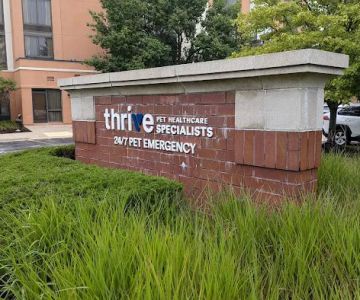- 1-Recognizing-Behavioral-Changes-in-Rabbits
- 2-Physical-Signs-of-Illness-in-Rabbits
- 3-Digestive-Issues-and-Rabbit-Health
- 4-Respiratory-Symptoms-to-Watch-For
- 5-Common-Rabbit-Illnesses-and-Prevention
- 6-When-to-Seek-Professional-Veterinary-Help
- 7-Tips-for-Maintaining-Rabbit-Health
1. Recognizing Behavioral Changes in Rabbits
One of the earliest signs of illness in rabbits is a change in behavior. Healthy rabbits are typically active, curious, and social. If you notice your rabbit becoming lethargic, hiding more than usual, or showing reluctance to move, these may be red flags signaling discomfort or pain.
Loss of appetite or refusal to eat favorite treats is another crucial behavioral change. Rabbits rely heavily on a consistent diet for digestive health, so any sudden disinterest in food warrants attention.
2. Physical Signs of Illness in Rabbits
Physical symptoms such as runny eyes or nose, wetness around the mouth, or unkempt fur can indicate underlying health issues. Noticeable weight loss or changes in fur texture may also suggest illness.
Swelling, lumps, or wounds on the body should never be ignored. Monitoring your rabbit’s posture and gait can help detect pain or injury early.

2700 W Higgins Rd, Hoffman Estates, IL 60169, USA
See Details3. Digestive Issues and Rabbit Health
Digestive problems are common in rabbits and often serious. Signs include diarrhea, constipation, or irregular fecal pellet production. Bloating, a distended abdomen, or grinding teeth may signal gastrointestinal distress or pain.
Since rabbits have delicate digestive systems, timely intervention is critical to avoid complications such as gastrointestinal stasis.
4. Respiratory Symptoms to Watch For
Rabbits can develop respiratory infections that manifest as sneezing, coughing, or labored breathing. Nasal discharge, especially if thick or colored, is a sign that veterinary care is needed.
Environmental factors like poor ventilation or dusty bedding can exacerbate respiratory issues, so maintaining a clean habitat is essential.
5. Common Rabbit Illnesses and Prevention
Common illnesses include pasteurellosis (snuffles), ear mites, dental disease, and flystrike. Regular check-ups and proper hygiene practices help prevent many of these conditions.
Vaccinations and parasite control protocols recommended by your veterinarian provide additional layers of protection.
6. When to Seek Professional Veterinary Help
If you observe any signs of illness in rabbits, prompt veterinary consultation is vital. Early diagnosis can drastically improve treatment outcomes. Emergencies like sudden collapse, difficulty breathing, or severe diarrhea require immediate professional attention.
Hidden Brook Veterinary offers specialized care tailored to rabbits, ensuring your pet receives the best possible treatment.
7. Tips for Maintaining Rabbit Health
Maintaining your rabbit’s health involves a balanced diet rich in hay and fresh vegetables, clean living conditions, and regular grooming. Observing your pet daily for any subtle changes helps catch issues early.
Engaging with resources like Hidden Brook Veterinary for advice and high-quality products supports a long, happy life for your rabbit.










